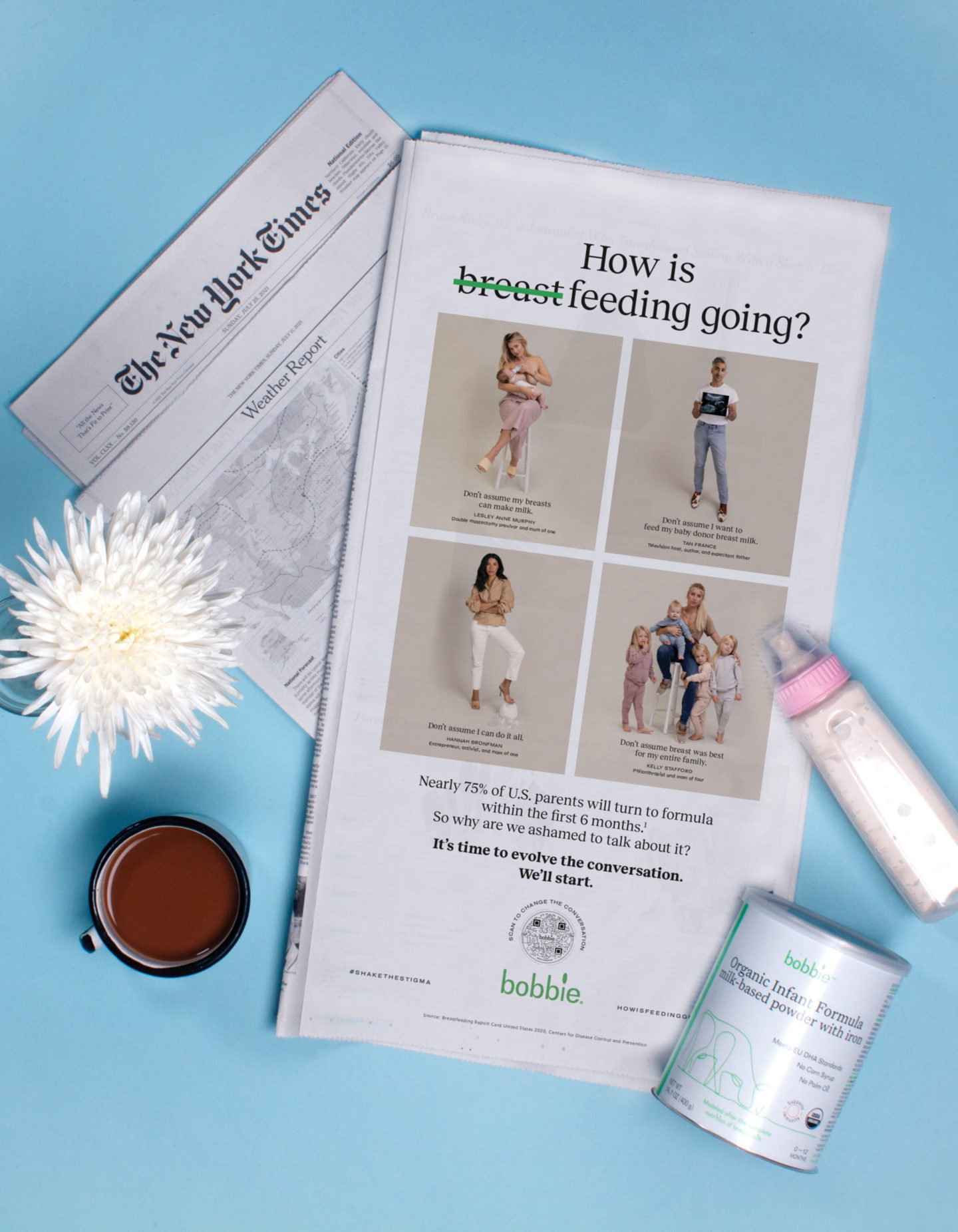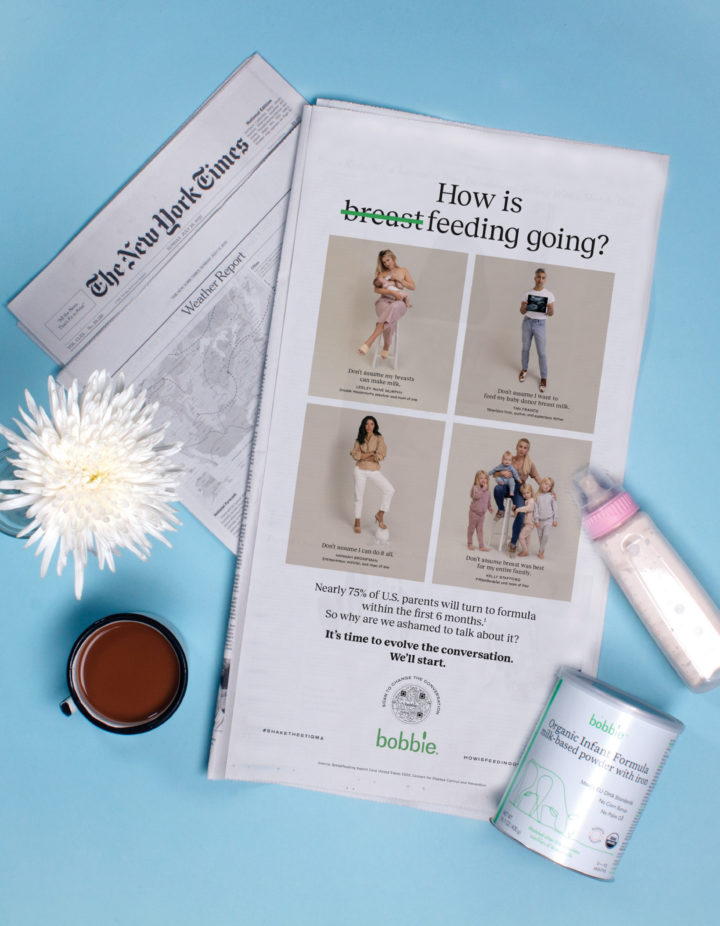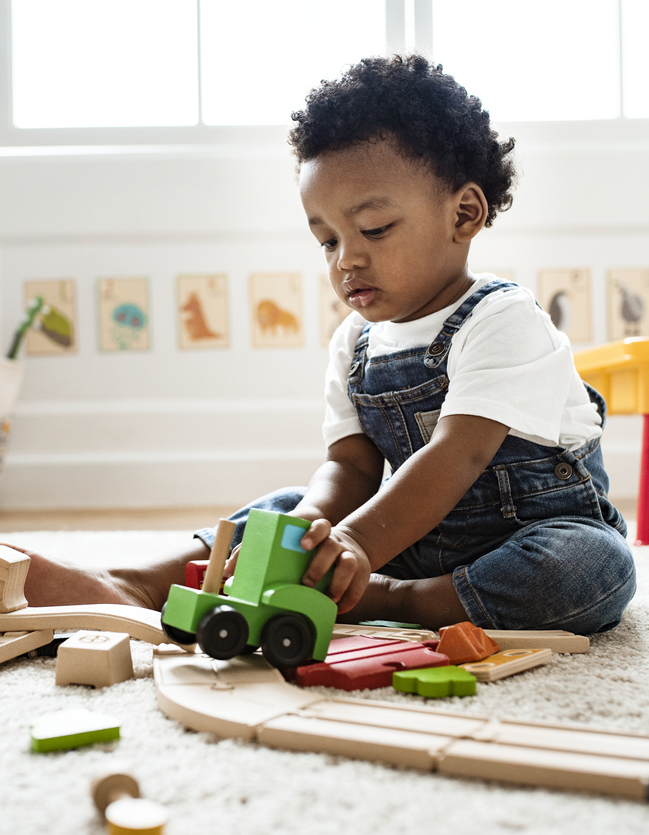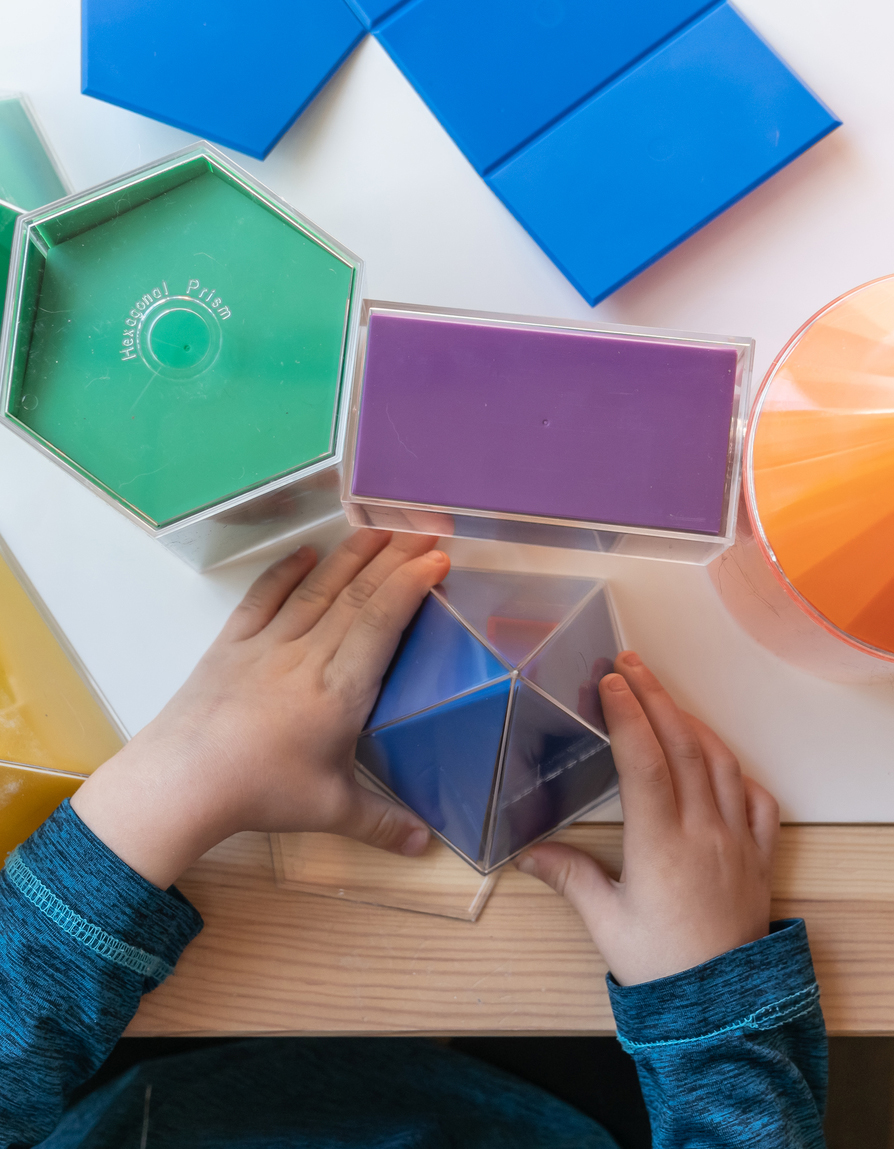This week, our friends at Bobbie launched their first national ad campaign with a specific goal: to create a more inclusive conversation around all feeding journeys.
Featuring extremely raw and real, personal stories from recognizable parents such as activist and HBFit Founder Hannah Bronfman and TV host Tan France, the commercial spot features anecdotes from parents on why, for them, the laser focus on breastfeeding didn’t meet the reality of the feeding experience.
Bronfman, who has had to deal with her own guilt for turning to formula, puts it perfectly: “The question really should be how is your feeding going, not how is breastfeeding going because every journey is so different,” she says. “‘Breast is Best’, implies that whatever you’re doing that’s not the breast, is second best. I really don’t feel like I’m giving (my baby) the second best.”
“I need the conversation to evolve so that my own child doesn’t grow up thinking he is second best because he is formula-fed,” says soon-to-be father Tan France.
It’s no coincidence that Bobbie launched its campaign on the first day of Breastfeeding Awareness Month, which we’re celebrating on Babe, a month that stems from the late 90’s ‘Breast is Best’ campaign. The campaign has been attributed for rates significantly rising for infants breastfed initially from 24.7% in 1971 to an incredible 84.1% in 2017. The US still has a long way to go in supporting those mothers. From education and normalizing the experience to legislation supporting women returning to the workplace, for many the journey to ‘best’ is an uphill, sometimes impossible, battle. But the success of the campaign also created a huge gap in inclusivity around the feeding experience and left many parents feeling like failures when their bodies, their babies, or their circumstances had other feeding plans.
Since that campaign, the paths to becoming a parent and the circumstances said parents find themselves in have drastically evolved, while the messaging around feeding has stayed flat. Today, we become parents via surrogacy and adoptions. We celebrate same-sex couples that choose to be parents and support mastectomy moms. We applaud women who prioritize their health, family, or jobs over exclusively breastfeeding. These women do not deserve to be left out of the feeding conversation, judged, or shamed for not breastfeeding.
Bobbie’s “How is feeding going?” campaign aims to normalize all kinds of feeding journeys from pumping to supplementing to exclusively formula feeding and stand up the Internet’s judgemental “feeding trolls” that can leave a non-breastfeeding parent feeling ashamed for how they choose to feed their babies. “No one can argue that breast milk is nutritionally superior to formula- it is dynamic and personal in a way that formula will never be. Our generation of parents is getting served with the breastfeeding message at all angles from the moment we become pregnant to social media to trying to hit the CDC’s recommendation of exclusively feeding for six months. I remember being taught how to hold a doll to my breast in a breastfeeding class while eight months pregnant, but never once did someone tell me what to look for if I do need to turn to formula, or how to even make a bottle,” said Laura Modi, CEO and co-founder of Bobbie. “And when no one talks about formula feeding, or even the fact that 70% of parents supplement breastmilk with formula, it starts to feel like a shameful act. The silence on the topic has stigmatized this type of feeding journey- and we think it’s time for the conversation on how we are feeding our babies to evolve.”
To watch the stories of these parents involved with “How is feeding going?” or to join Bobbie’s movement to evolve the conversation you can visit www.howisfeedinggoing.com.




